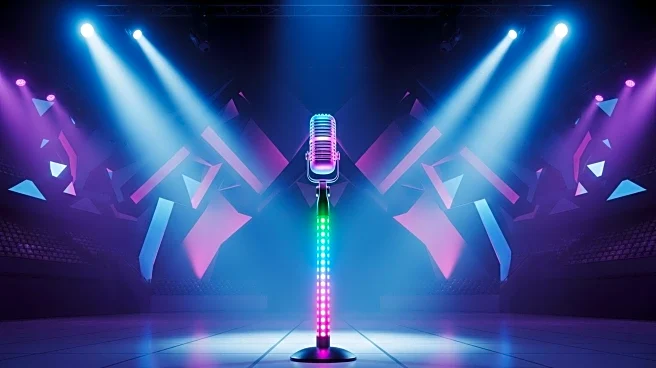What is the story about?
What's Happening?
The NFL has announced that Puerto Rican singer Bad Bunny will perform at the Super Bowl LX halftime show, scheduled for February 8, 2026, at Levi's Stadium. This announcement follows reports that pop star Taylor Swift was in discussions to headline the event but ultimately declined the offer. Swift reportedly walked away from negotiations due to the NFL's refusal to meet her demands, which included retaining ownership of the performance and promoting her own projects. Bad Bunny expressed his excitement, stating that the performance is a tribute to his culture and history. Meanwhile, British singer Adele is reportedly being considered for future halftime shows.
Why It's Important?
The selection of Bad Bunny as the halftime performer highlights the NFL's ongoing efforts to diversify its entertainment offerings and appeal to a broader audience. Bad Bunny's inclusion represents a significant nod to Latin music and culture, potentially attracting a wider demographic to the Super Bowl event. Taylor Swift's decision to decline the offer underscores the growing influence and negotiating power of artists in the entertainment industry, as they seek greater control over their performances and brand representation. This development may influence future negotiations between artists and major event organizers.
What's Next?
With Bad Bunny confirmed as the halftime performer, the NFL will likely focus on finalizing the show's production details and promotional strategies. Fans can expect announcements regarding additional performers or collaborations that may enhance the halftime experience. The league may also continue discussions with other high-profile artists, such as Adele, for future events. As the Super Bowl approaches, stakeholders will monitor fan reactions and engagement, assessing the impact of Bad Bunny's performance on viewership and cultural representation.
Beyond the Headlines
Taylor Swift's decision to decline the Super Bowl halftime show offer raises questions about the evolving dynamics between artists and major event organizers. As artists increasingly prioritize creative control and ownership, event organizers may need to adapt their approaches to secure top talent. This shift could lead to changes in how performances are negotiated and structured, potentially influencing the entertainment industry's standards and practices.















